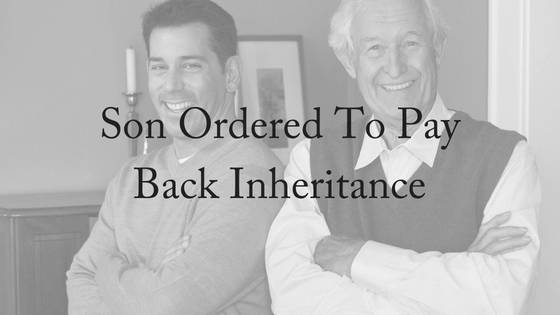A son who claimed his mother’s partner of 20 years was merely a “lodger” in her home has been ordered to hand him more than half of his £725,000 inheritance.
James Campbell, 35, claimed his mother Sarah Campbell had told him her estate would be “all yours” when she died. However, she died unexpectedly on a flight to the Canary Islands in 2015 aged 63, and her partner went to the High Court seeking a share of her estate.
Andrew Banfield, 66, who is disabled, argued that he had effectively been a husband to Mrs Campbell for more than a decade. He also claimed they became engaged in 1999, six years after the start of their relationship.
Mr Campbell denied that an engagement had taken place and claimed his mother’s feelings towards her partner had deteriorated to the point that she considered that Mr Banfield was “no more than a lodger” in her home in Thames Ditton.
Judge Teverson ordered that Mrs Campbell’s house be sold for at least £725,000 and half the proceeds invested in a home for Mr Banfield, which will revert to Mr Campbell on his death.
In Australia, an estate battle of this kind is known as a family provision claim. Family provision claims arise where a will maker doesn’t make adequate provision in his or her will for family members. In each of the states of Australia, the law casts an obligation upon a will maker to make adequate provision for certain persons. The definition of ‘certain persons’ differs from state to state. In Queensland, a will maker ought to make adequate provision for the following persons:
· Spouse;
· Former spouse (in limited circumstances);
· Child;
· Step-child;
· A dependent (in limited circumstances).
Inheritance swindled from dying woman
An actress known as the “British Brigitte Bardot” was robbed of the chance of a longer life by a crooked property consultant who tried to swindle her out of her £900,000 fortune as she was dying.
 Claire Gordon was a star of stage and screen for four decades — featuring in a string of raunchy comedies, and alongside Bob Monkhouse and Michael Crawford in the Sixties.
Claire Gordon was a star of stage and screen for four decades — featuring in a string of raunchy comedies, and alongside Bob Monkhouse and Michael Crawford in the Sixties.
When she died from a brain tumour aged 74 in April 2015, she left behind an estate worth £905,836 which included a cottage a safari park and a property at a beach resort in Egypt.
Ms Gordon had been splitting her time between England and Egypt and was overseas when she became ill in December 2014. Her family only learnt of her death when Macmaster posted a notice in The Times four days after she died.
Her family then spent four months investigating why the estate was due to be split between Macmaster and another man rather than going to her family, and said: “I didn’t believe Claire would have disinherited us — she loved her family”.
Police discovered he forged Ms Gordon’s signature on a bogus will leaving him 60 per cent of her fortune in the last months of her life.
Have you been left out of the will?
You may feel as if you have been left out of an inheritance or that the inheritance you thought you were getting is missing. Sometimes a person making a will deliberately disinherits family members or children. If you have been left out of the will, there are options for you. You can make an application to the court to ask for further provision.
The Court determines an application for provision in a two-stage process, determining whether the applicant has been left without adequate provision, and then how much provision ought to be made to the applicant. Some of the factors the court will take into account when making its decision include the nature of the relationship between the deceased and the applicant, the size of the estate, the financial resources of the applicant, the age of the applicant, whether the deceased made any provision for that person during his or her lifetime, and the character and conduct of the applicant.
Do I need a lawyer if I’ve been left out of a will?
If you have been left out of a will, you need to contact a lawyer who is an expert in wills and estates immediately. There are very tight time frames in which to exercise your rights if you have been left out of the will and if you delay you may lose your rights. There are rules relating to who can make a claim against an estate for being left out of a will.
To ensure you receive the very best advice, contact an Accredited Specialist in Succession Law (Wills and Estates). Bryan Mitchell of Estate Battles, is an Accredited Specialist and offers a FREE 10-minute phone consultation. Call us today!

